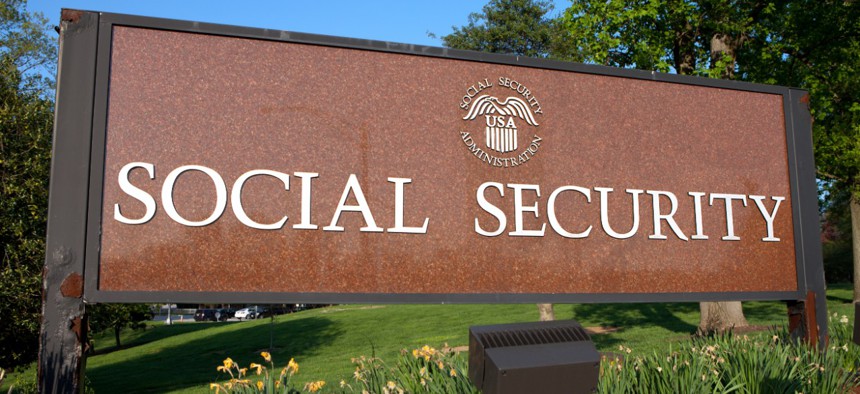
By Mark Van Scyoc / Shutterstock.com
Labor Authority Reverses Previous Decision, Stays Implementation of SSA Contract With Administrative Law Judges Union
The Social Security Administration had already stated that it would not impose the new collective bargaining agreement while a federal lawsuit from the judges’ union was pending.
The Federal Labor Relations Authority on Thursday announced that it would stay implementation of a new union contract set to be imposed between the Social Security Administration and the Association of Administrative Law Judges, reversing a previous ruling allowing it to proceed.
The judges union is one of several labor groups challenging the constitutionality of how members of the Federal Service Impasses Panel, which settles intractable disputes that come up during collective bargaining negotiations, are appointed.
In March, the FLRA denied a request from the judges’ union to block the Federal Service Impasses Panel from issuing an imminent decision imposing a new collective bargaining agreement between the union and the Social Security Administration, finding that the request did not fall under the narrow circumstances under which the FLRA can halt the impasses panel’s proceedings.
In that decision, the FLRA concluded that the union's demand that the authority consider its constitutional challenge—that members of the impasses panel should be confirmed by the Senate—could not be the basis of staying a decision. Instead, it offered another avenue by which the union could bring the matter back to the FLRA, despite the fact that impasse panel decisions are not subject to administrative or judicial review.
“Panel decisions are ‘not directly reviewable by the authority or the courts,’ ” the FLRA wrote in March. “Rather, parties may challenge a panel order through other statutory procedures. Specifically, it is an unfair labor practice for an agency or a labor organization ‘to fail or refuse to cooperate in impasse panel procedures and impasse decisions.’ If a party fails or refuses to comply with a panel order, and is consequently charged with an unfair labor practice, it may challenge the panel’s jurisdiction as part of the ensuing proceedings.”
In April, the impasses panel issued a mostly pro-management decision, prompting the union to file a federal lawsuit in U.S. District Court for the District of Columbia, seeking to declare the panel’s decisions null and void. The union argued that because the impasses panel’s decisions cannot be directly appealed and panel members are supervised only by the president, they are principal officers and must receive Senate confirmation.
Although the Social Security Administration has said it would delay implementation of the new union contract due to the lawsuit, on Thursday the FLRA issued a new decision formally staying the panel’s decision from taking effect. In its ruling, the agency said the lawsuit constitutes a new “differentiating circumstance” necessitating this action.
“The complaint filed by the union on April 20, 2020, in federal district court presents such an ‘unusual circumstance,’ a circumstance that did not exist when we considered, and denied, the union’s motion on March 31, 2020,” the FLRA wrote. “Under these circumstances, we believe that reconsideration of that denial is warranted . . . Implementation of the panel’s order at this time ‘would not advance the purposes of the statute’ due to the pendency of parallel proceedings in federal district court.”
Once the district court issues its decision in the case, the FLRA wrote that both parties “shall file appropriate motions” within 30 days.
However, the decision was not unanimous. Ernest DuBester, the lone Democratic appointee to the FLRA, wrote a dissent to the May decision, noting that neither Social Security nor the judges union have asked the agency to reconsider its decision. He also highlighted that the original decision seemed to preclude the FLRA from weighing in on the union’s constitutional argument altogether.
“More fundamentally, our decision today grants relief that was not specifically requested by the union in its motion for stay based on reasons that were never argued by the union in support of its motion,” DuBester wrote. “[We] denied the [original] motion because ‘we cannot stay further proceedings by the panel pending a ruling on objections that we are not empowered to make.’”
The Association of Administrative Law Judges declined to comment on the FLRA’s decision.







